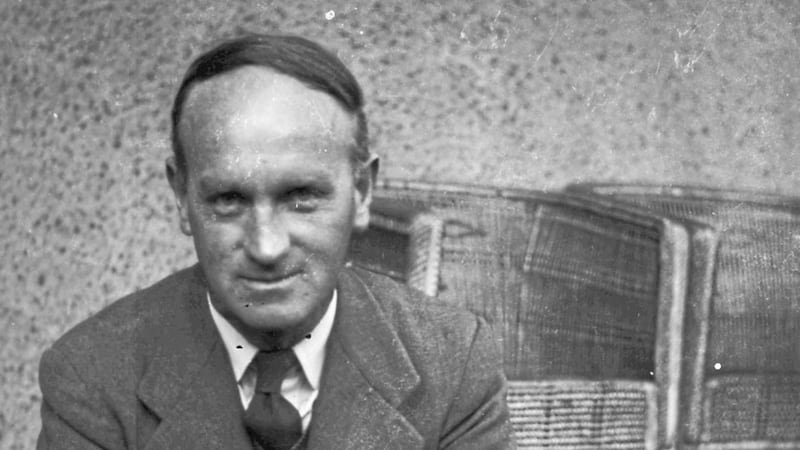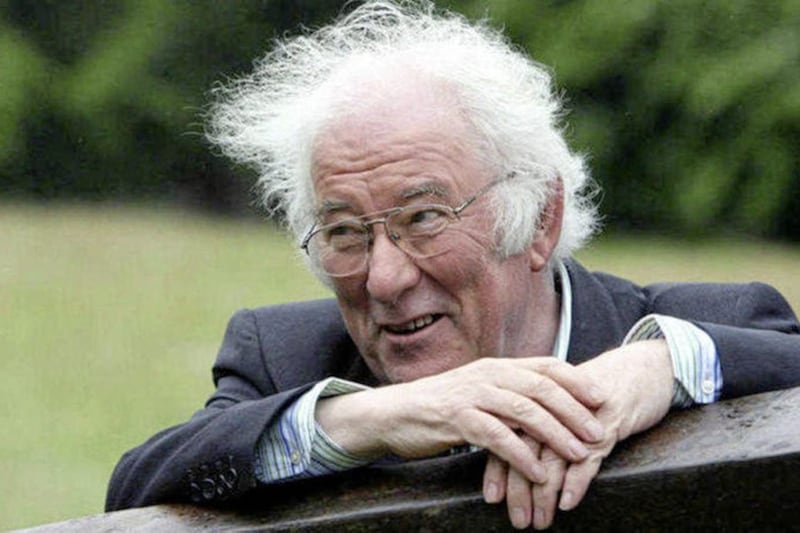WHEN the Linen Hall Library recently and most faithfully reproduced Michael McLaverty’s 1949 short story collection The Game Cock, it served as a timely reminder of how significant a snapshot of a time, place and people this slender volume represents.
It may come as a surprise to learn that it was nearly McLaverty's last short-story collection; and to readers familiar with his eight novels, it may be equally surprising to discover that, to begin with, he had no interest in writing a novel.
During the 1930s he produced a strong body of work in the short-story form – tales of loss and longing, of island children, or the old and dispossessed. His talent prompted Irish-American editor and anthologist Edward J O'Brien – champion of, among others, Scott Fitzgerald and Ernest Hemingway – to bring his work to the attention of the publishing firm of Longmans Green, of New York and London. They wanted to publish McLaverty's writing but asked for a novel, rather than short stories.
McLaverty bowed to necessity and gave them the lyrical, poetic Call My Brother Back (1939), followed in 1941 by Lost Fields. Almost imperceptibly, the course of his career was changed.
He did not neglect his first love, the short story: 1943 saw Richard Rowley's Mourne Press publication of The White Mare and Other Stories (also recently reprinted by the Linen Hall Library). Yet, the novel form was gradually becoming more important to him.
A difference of opinion with Longmans over the ending of his third novel In This Thy Day (1945) led him to seek a change of American publisher. One of those he approached was Devin-Adair, of New York. Unlike Longmans, Devin-Adair wanted short stories, and the result was The Game Cock and Other Stories (1947). In 1949 his British publisher since 1941, Jonathan Cape, repeated its success.
Yet, despite its enthusiastic reception on both sides of the Atlantic, McLaverty quite suddenly declared himself uninterested in building on the success of The Game Cock. On December 31 1949, answering a request for a story from a London editor, he wrote: "I have turned my back on the short story."
No longer reluctant, he now intended to give exclusive attention to the novel.
We must be grateful that he did not for, though he was to write only seven more short stories between that renunciation of 1949 and his death in 1992, they were of such a quality that his friend and former junior colleague at St Thomas’s Secondary School in west Belfast, Seamus Heaney, encouraged him to send some to Davis Marcus for his New Irish Writing Page in The Irish Press.
The result was that Marcus persuaded McLaverty to allow his new imprint, Poolbeg Press, to bring out in 1976 a volume entitled The Road to the Shore, followed in 1978 by Collected Stories. There followed an Indian summer, with renewed critical attention and the republication of all eight novels, finally restoring to him the recognition and honour he had earned but never sought.
The friendship begun when the young Heaney first met McLaverty in 1962 was celebrated by the poet, whom McLaverty once described as “the only genius I ever knew”, in Fosterage (North, 1975), Station Island (Station Island, 1984) and An Evening at Killard, which Heaney first read in 2004 at the Linen Hall Library’s Colloquium to celebrate the centenary of McLaverty’s birth.
:: Twenty-five years after McLaverty’s death, what Heaney called their “writerly bond” will be remembered on Saturday afternoon, October 28, at 3pm, in the Seamus Heaney HomePlace, when McLaverty’s daughters Sheila Cunningham and Maura Cregan will join with Maura’s fellow literary executor Sophia Hillan, and John Killen, former Librarian of the Linen Hall Library, in a discussion chaired by poet and physicist Iggy McGovern, about this long and remarkable friendship. Actor Vincent Higgins will read Heaney’s last poem for McLaverty, An Evening at Killard.








